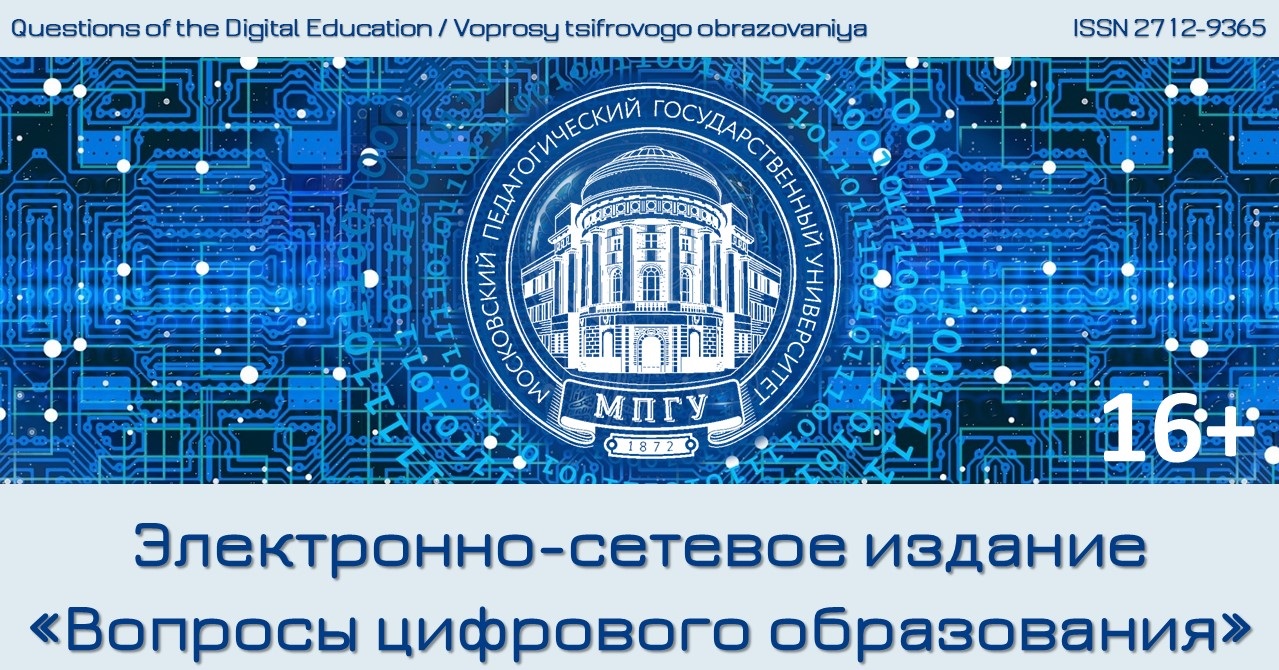The editorial ethics of the journal “Questions of the Digital Education” is based on the Code of Ethics for Scientific Publications, developed by the Committee on the Ethics of Scientific Publications, as well as the experience of reputable international journals and publishers.
Authors are obliged:
- ensure the relevance, scientific novelty and reliability of the materials submitted to the editorial office;
- take into account the work of other researchers, ensure accuracy in the design of references to sources and the correctness of citation;
- guarantee the originality of the research, avoiding plagiarism in all its forms (excessive citation, hidden citation, retelling, paraphrasing, etc.);
- include in the number of co-authors all persons who contributed to the conduct and presentation of the results of the study;
- guarantee the exclusivity of the materials provided (the article cannot be previously published or offered to another publication);
- be ready to cooperate with the editors to correct errors or shortcomings at any stage of working with materials;
- indicate information on financial sources of support for the results of the study reflected in the materials.
Reviewers are required to:
- comply with the normative deadlines for reviewing established by the editors;
- treat the manuscript received for review as a confidential document, do not provide it for review to other persons and do not use the unpublished data contained in them; written reviews must also be kept confidential;
- give a reasoned and correct assessment of the stated results of the study;
- in case of insufficient scientific or professional competence for an objective assessment of the submitted materials, report these circumstances;
- not have a conflict of interest in relation to the peer-reviewed material and its author/authors.
The Editor-in-Chief and Deputy Editor-in-Chief are required to:
- not give preference to authors based on gender, race, religious beliefs, citizenship, ethnicity, political opinions, or other conditions that are not related to the scientific value of the work;
- be responsible for accepting or rejecting the article;
- not to allow for publication materials that have no scientific value, do not correspond to the profile of the journal, contrary to its editorial policy and ethics;
- have no conflict of interest with respect to the articles they reject or accept;
- ensure the involvement of competent reviewers, use the practice of anonymous review;
- observe copyright, respectful and correct attitude towards the author and his scientific competence, coordinate editorial changes with the authors;
- cooperate with authors and readers, publishing, if necessary, corrections, clarifications, retractions and apologies;
- keep editorial secrecy, not disclose information about the submitted manuscript to anyone else, except for the author, reviewers, potential reviewers, members of the editorial board and the editorial board.
